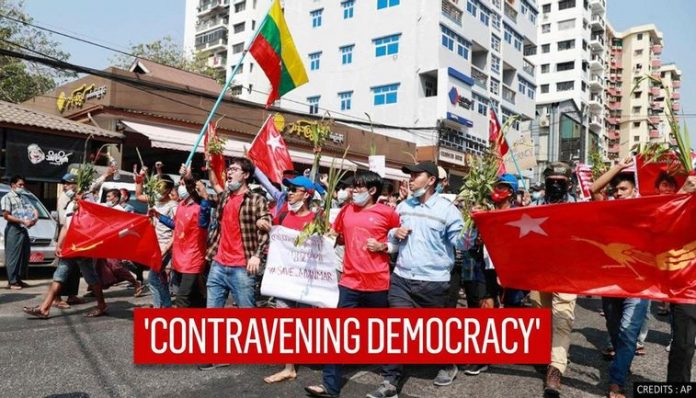A draft cybersecurity law due to be implemented in Myanmar has now raised protests that it will be used to quash dissent rather than protect privacy. The UNHRC has issued a statement urging the country’s military leaders to drop the plan and end internet disruptions that have intensified since February 1. According to the Associated Press, Matthew Bugher, head of the Asia program for the group Article 19, said that the draft law shows the military’s intent to permanently undermine internet freedom in the country. Bugher further condemned the plan along with the Open Net Association and the International Commission of Jurists.
The internet service providers and others were given until February 15 to respond to the proposed law. Sam Zarifi, the International Commission of Jurists’ secretary-general said that the draft law is telling that controlling cyberspace is one of the top priorities of the Myanmar military, which seized power through an illegitimate coup d’état only last week. The military is used to having total power in the country, however, this time they have to face a population that has access to information and can communicate internally and externally, Zarifi said.
Further, Jeff Paine, managing director of the Asia Internet Coalition, said that the bill would give the military unprecedented power to censor citizens and violate their privacy, contravening democratic norms and fundamental rights guaranteed under International law. He urged coup leaders to consider potentially devastating impacts on the Myanmar economy and people. Norway’s Telenor also said that it was facing “several dilemmas”.
“Access to telecom services is essential for people to exercise their basic right to freedom of opinion and expression, and to gain information. These services are also critical in the ongoing COVID-19 pandemic, and for economic opportunities,” the company said in a statement.
Draft cybersecurity law
Following the draft law, a group of 158 members of nongovernmental organisations also has released a statement protesting the draft law. Opponents of the draft law said that it calls for banning online anonymity, removing content the government deems unacceptable and punishing violations with criminal penalties. The law also demands the elimination of online comments considered to be misinformation or disinformation, that might cause hate or disrupt stability, and any comment that might violate any existing law.
The law would also require internet service providers to keep usernames, IP addresses and other personal data for up to three years. The data has to be kept in a place designated by the government. According to reports, the internet service providers could face maximum prison sentences of three years and a fine for failing to comply with the law’s broad and vague provisions. The proposal smacks of a legislative attempt to extend the powers the military had taken in an unlawful, anti-democratic coup, said Kyung Sin Park, executive director of the Open Net Association.
Source : Republicworld and AP News
















